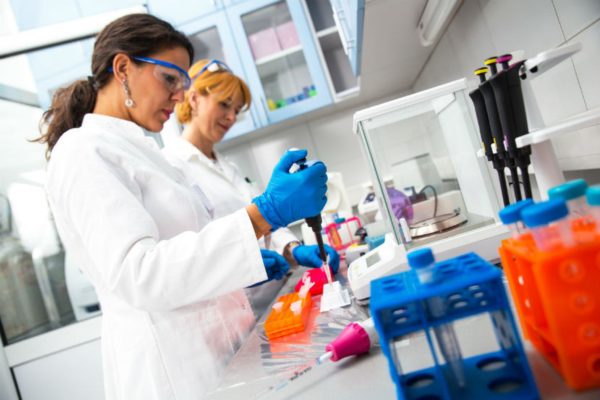When you see a mighty Texas live oak tree, you probably don’t think of the tiny acorn that started it. Likewise, most of us go through our daily routines of using our smartphones, shopping safely online or taking medications our doctors prescribe without dwelling too much on where these advances first came from.
In many cases, the answer is that these things started with research done at universities. In fact, without innovations out of Texas research universities, that lightweight battery that allows you to carry around your smartphone, the online encryption that provides peace of mind for shopping online and many pharmaceuticals that today save countless lives wouldn’t exist.
The seed corn for each of these modern necessities is what’s called basic research. And, just as with the oak, over years and decades, something that began small, often with one person’s curiosity, got transformed into something tremendous — innovations that drive whole sectors of our economy and improve lives.
Even in the private sector, research and development capitalizes on discoveries that sprouted at universities and publicly funded labs. Most people know that companies need universities to help prepare the people they hire for skilled jobs. Similarly, they lean on universities to provide those first seeds for research innovation.
Here in Texas, our state Legislature is currently weighing a budget with significant cuts for public universities and research. Nationally, too, research funding is under new scrutiny. As our elected leaders look at priorities, it’s more important than ever that those of us in universities demonstrate how the education and basic research we provide helps fuel progress for the state and the nation.
For example, in the wake of a series of anthrax attacks that killed Americans shortly after Sept. 11, 2001, University of Texas at Austin researchers engineered an antibody that could help in future attacks. Today, as a result of their research and a partnership with a private company, the world now has a new drug to prevent and treat inhalation anthrax.
Even research that can sound ridiculous often leads to needed advances. For example, a marine scientist on the Gulf Coast puts red drum fish on “treadmills.” But the special tanks in his lab make it possible to learn how oil in the water affects one of Texas’ most sought-after fish. It’s information that anglers, the tourism industry and local fisheries need when events such as the Deepwater Horizon oil spill happen.
Astronomers at Texas A&M University and UT Austin are developing instrumentation now for a new telescope more sensitive than anything in existence today, allowing us to see the outer edges of the universe. This matters in the state that’s home to NASA, where we’ve all seen how new technologies in the space sciences can lead to unexpected applications and broader benefits. Practical tools and the inspiration that comes from exploring new frontiers can, and often do, go hand in hand.
If you didn’t know all this was happening here in Texas, you’re not alone. It is one reason UT Austin opens its campus every March for an event called Explore UT, when the people of Texas, from school children to seniors, are invited to experience university life firsthand. It’s a chance to meet researchers, see hands-on demonstrations, talk to students and simply learn about what public investment in a university means for Texas.
It’s also a way to pull back the curtain on the story of basic research.
It will always be true that university research both drives innovation and produces false starts. This is how science — how discovery — works. Many acorns don’t lead to an oak, yet they still serve an essential function in the landscape, nourishing living things and enriching the soil. The process of discovery happens the same way.
We don’t know which ideas will lead to the next transformative breakthrough, only that some will. Research also helps us understand more of the world around us, something just as critical for our progress.
Linda Hicke is dean of the College of Natural Sciences at The University of Texas at Austin.
A version of this op-ed appeared in the San Antonio Expresss News, Dallas Morning News, Sherman-Dennison Herald Democrat, The Rivard Report and the McAllen Monitor.
To view more op-eds from Texas Perspectives, click here.
Like us on Facebook.




